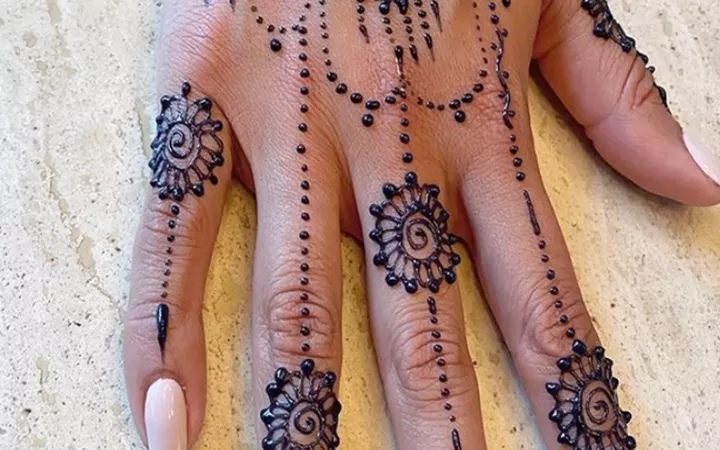Henna tattoos, also known as Mehndi, are a form of temporary body art that has been practiced for centuries in various cultures around the world. Henna designs are often intricate and beautiful, and they hold deep symbolic meaning for those who wear them. In this article, we will explore the symbolism behind henna designs and what they represent.
Protection
Henna designs are often worn for protection. In many cultures, henna is believed to have protective properties and is used to ward off evil spirits and negative energy. Henna designs that feature intricate patterns and symbols are often worn during important life events, such as weddings and childbirth, to protect the wearer from harm. The symbols used in henna designs for protection may vary from culture to culture, but they often include eyes, hands, and other symbols of protection.
Luck and Prosperity
Henna designs are also associated with luck and prosperity. In some cultures, henna is believed to bring good fortune and wealth to the wearer. Henna designs that feature symbols of prosperity, such as flowers and leaves, are often worn during important life events, such as weddings and festivals, to bring luck and success to the wearer. The symbols used in henna designs for luck and prosperity may vary from culture to culture, but they often include symbols of abundance, such as fruits and coins.
Love and Romance
Henna designs are also associated with love and romance. In some cultures, henna is used to symbolize the love between a husband and wife. Henna designs that feature symbols of love and romance, such as hearts and flowers, are often worn during weddings and other romantic events. The symbols used in henna designs for love and romance may vary from culture to culture, but they often include symbols of affection, such as birds and butterflies.
Strength and Power
Henna designs are also associated with strength and power. In some cultures, henna is believed to have healing properties and is used to treat various ailments. Henna designs that feature symbols of strength and power, such as animals and birds, are often worn by warriors and athletes to enhance their physical abilities. The symbols used in henna designs for strength and power may vary from culture to culture, but they often include symbols of courage and resilience.
Spiritual Connection
Henna designs are also associated with spiritual connection. In some cultures, henna is believed to have a spiritual connection to the divine and is used to enhance meditation and spiritual practices. Henna designs that feature symbols of spirituality, such as mandalas and lotus flowers, are often worn by those who seek a deeper connection to the divine. The symbols used in henna designs for spiritual connection may vary from culture to culture, but they often include symbols of enlightenment and transcendence.
Celebration
Henna designs are also associated with celebration. In many cultures, henna is used to mark important life events, such as weddings and festivals. Henna designs that feature vibrant colors and intricate patterns are often worn during these celebrations to add to the festive atmosphere. The symbols used in henna designs for celebration may vary from culture to culture, but they often include symbols of joy and happiness.
Conclusion
Henna designs hold deep symbolic meaning for those who wear them. Whether it is for protection, luck, love, strength, spirituality, or celebration, henna designs are a beautiful way to express one’s beliefs and values. As a tattoo artist, it is important to understand the symbolism behind henna designs and to work with clients to create designs that are meaningful and authentic to their culture and beliefs.
Related topics:

